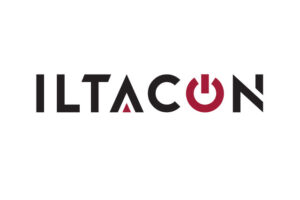
“It’s
literally
impossible
to
be
a
woman…You
have
to
be
a
boss,
but
you
can’t
be
mean…
You
have
to
be
a
career
woman,
but
also
always
be
looking
out
for
other
people.”
—
Barbie,
the
movie
According
to
a
study
conducted
by
Indeed,
73%
of
women
surveyed
expressed
fear
they
would
be
perceived
negatively
for
self-advocating,
and
43%
feared
retribution
for
self-advocacy.
Advocating
for
your
career
is
a
vital
skill,
especially
for
women
navigating
industries
that
have
historically
been
dominated
by
men.
Self-advocacy
is
critical
for
advancing
your
career
and
unlocking
new
opportunities.
This
journey
involves
mastering
your
craft
and
ensuring
that
your
contributions
are
recognized,
your
voice
is
heard,
and
your
career
progresses
as
you
envision
it.
Research
indicates
several
factors
can
create
barriers
for
women
when
they
advocate
for
themselves.
In
the
ILTACON
session,
“Women
Who
Lead:
Advocating
for
Your
Career
at
Any
Stage,”
panelists
Julia
Montgomery
(Associate
Member),
Ashley
Byrne
Smith
(Troutman
Pepper),
Martha
Gleason
Voice
(Amplify
Your
Voice),
Monique
Mavour
(Holland
&
Knight
LLP),
and
Heather
Morrow
(Loeb
&
Loeb
LLP)
shared
their
personal
experiences,
lessons
learned,
and
the
following
practical
strategies
to
help
you
find
and
use
your
voice.
-
Perspective-Taking.
Spend
time
examining
the
situation
through
the
eyes
of
the
other
person
and
frame
up
your
ask
in
a
way
that
can
benefit
them.
Data
suggests
leveraging
perspective-taking
during
self-advocacy
increases
the
chances
of
women
being
perceived
as
assertive
but
likable. -
Signal
Flexibility.
Come
to
the
table
with
more
than
one
path
to
“yes”
for
what
you
want.
Research
shows
giving
people
options
rather
than
presenting
a
single
ask
with
a
single
yes/no
path
lowers
defenses
and
helps
maintain
likability
while
still
being
assertive. -
Ask
for
Advice/Help.
Frame
up
your
desired
outcome…and
then
ask
for
advice.
“If
you
were
trying
to
accomplish
X,
how
would
you
go
about
it?”
This
can
help
address
the
self-promotion
double-bind:
don’t
advertise
and
go
unnoticed;
advertise
and
risk
being
perceived
as
unlikable. -
Be
Specific.
When
negotiating
for
a
raise,
be
specific
and
highlight
your
accomplishments:
“In
my
time
with
the
company,
I
have
accomplished
X,
which
has
resulted
in
X
improvement.
As
a
result,
I
think
a
salary
increase
of
X
is
appropriate.” -
Find
Your
“Three
Words.”
These
are
the
words
you
want
your
colleagues
and
higher-ups
to
use
when
talking
about
you
—
especially
when
you’re
not
in
the
room. -
Leverage
Your
(Clifton)
Strengths.
Learn
how
to
use
your
superpowers
to
ignite
your
authentic
leadership
voice. -
Focus
on
Your
One
Thing.
What’s
the
one
thing
you
need
to
do
this
month
to
move
forward?
What
do
you
need
to
do?
What
do
you
need
to
believe?
What
do
you
need
to
become?
Where
do
you
need
support? -
Adopt
Phrases
that
allow
you
to
say
“yes”
without
the
additional
workload,
and
nothing
should
be
“above/below
your
paygrade.” -
Celebrate
Your
Wins
and
Set
Your
Own
Goals.
Don’t
rely
on
others
to
trumpet
your
good
work,
and
don’t
assume
others
know
about
your
awesome
stuff. -
Ask
for
What
You
Want.
Be
confident
and
specific
in
your
request.
Consider
having
alternatives
in
your
back
pocket
to
help
continue
the
conversation
beyond
initial
resistance.
Advocating
for
your
career
doesn’t
end
when
you
reach
the
top;
it
extends
to
helping
others
along
their
journey.
One
of
the
key
takeaways
from
this
session
is
that
women
should
be
allies
for
other
women.
When
a
woman
advocates
for
another
woman,
she
doesn’t
get
the
pushback
she
does
when
she
advocates
for
herself.
Pay
it
forward
by
mentoring
and
sponsoring
other
women
in
your
organization.
Share
your
experiences,
offer
guidance,
and
help
them
navigate
the
challenges
you
once
faced.
Advocating
for
others
strengthens
one’s
leadership
legacy
and
creates
a
ripple
effect
that
can
lead
to
broader
systemic
change.
When
women
support
each
other,
they
build
a
more
robust,
more
equitable
workforce
for
future
generations.
The
session
concluded
with
the
attendees
being
introduced
to
Thistle
Farms,
a
nonprofit
social
enterprise
dedicated
to
helping
women
survivors
recover
from
prostitution,
trafficking,
and
addiction.
They
do
this
by
providing
a
safe
place
to
live,
a
meaningful
job,
and
a
lifelong
sisterhood
of
support.
Thistle
Farms
offered
a
variety
of
products
made
by
the
women
in
the
program
available
for
purchase.
When
we
invest
in
women,
entire
communities
heal.
Advocating
for
your
career
is
a
continuous
process
that
evolves
as
you
progress
through
different
stages
of
your
professional
life.
From
building
confidence
and
networking
at
the
start
of
your
career
to
embracing
leadership
and
championing
diversity
later
on,
self-advocacy
is
key
to
achieving
your
goals
and
advancing
your
career.
For
women,
advocating
for
yourself
is
not
just
about
securing
promotions
or
salary
increases;
it’s
about
creating
a
career
that
aligns
with
your
values,
leverages
your
strengths,
and
contributes
to
a
more
inclusive
and
equitable
workplace.
By
mastering
the
art
of
self-advocacy,
you
empower
yourself
to
take
control
of
your
career
and
pave
the
way
for
future
generations
of
women
in
the
workforce.
Vicki
LaBrosse,
director
of
global
public
relations
for
Edge
Marketing,
Inc.,
works
with
clients
to
develop
and
execute
comprehensive
PR
and
marketing
strategies
that
help
them
grow
their
businesses.

